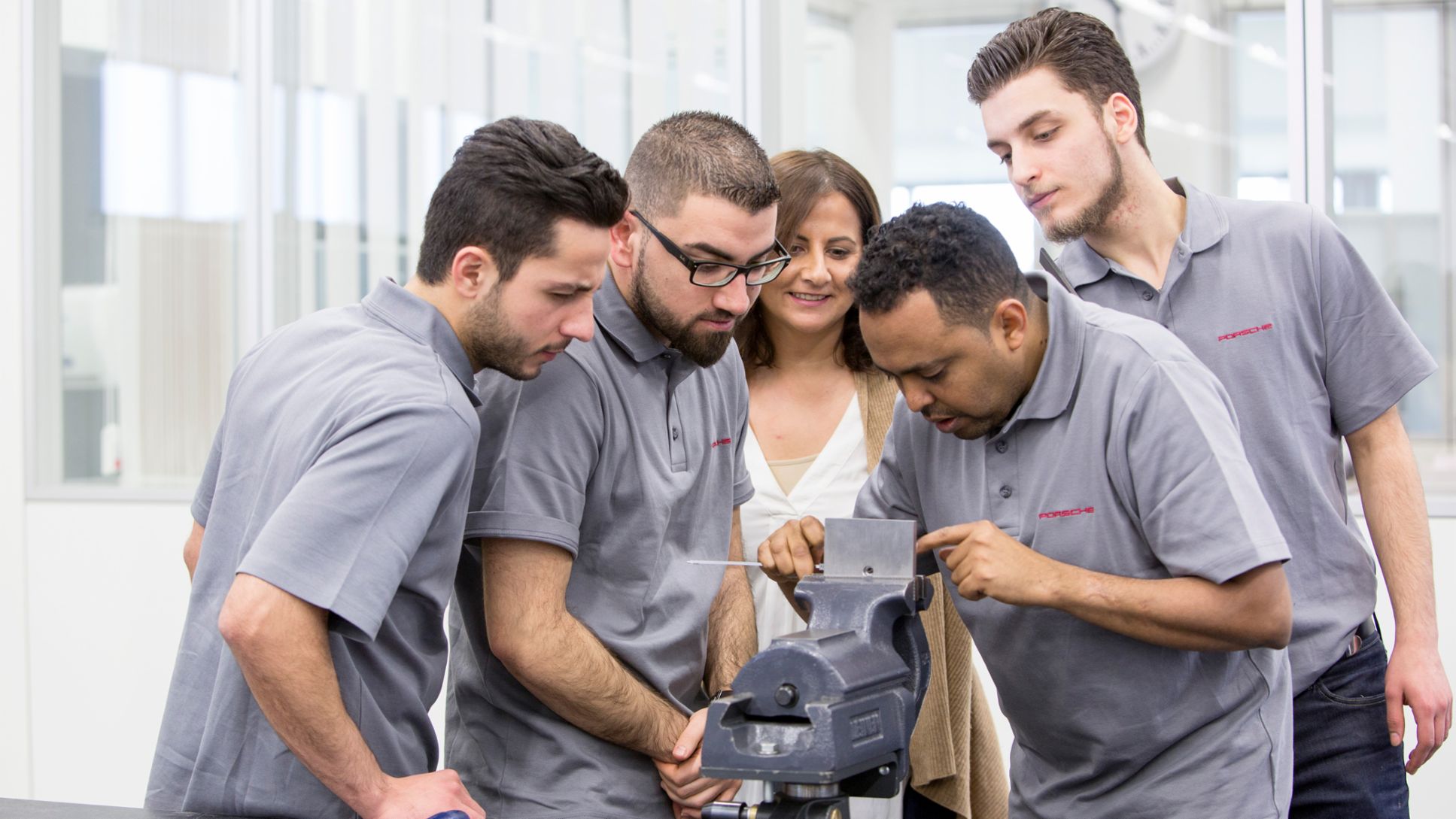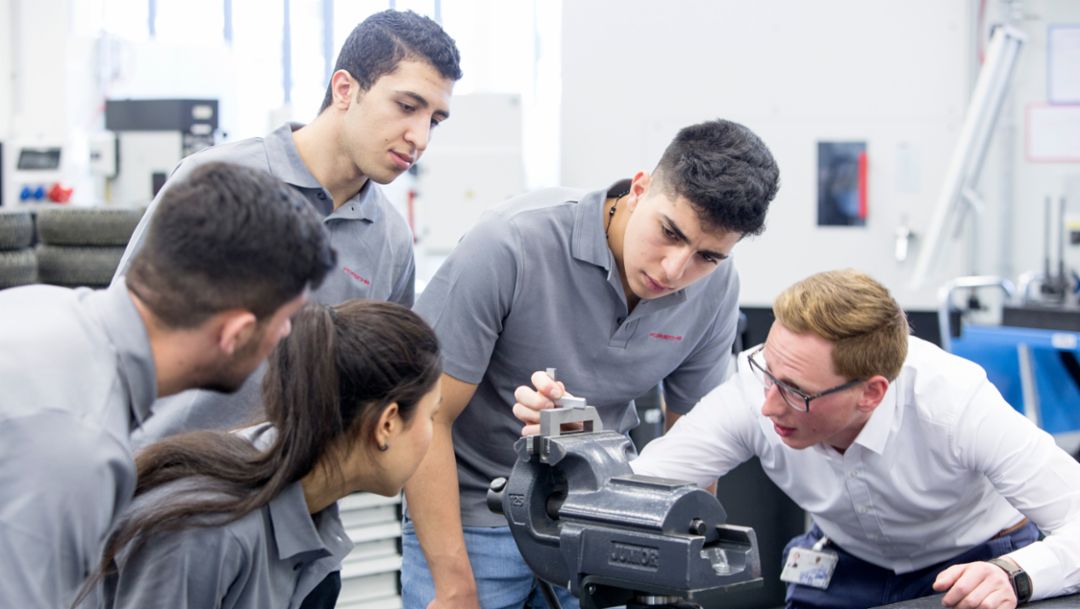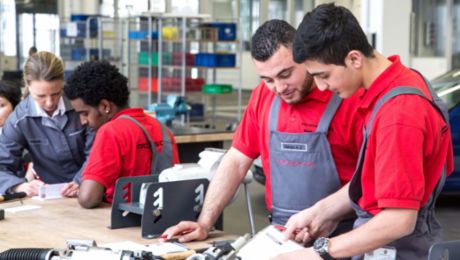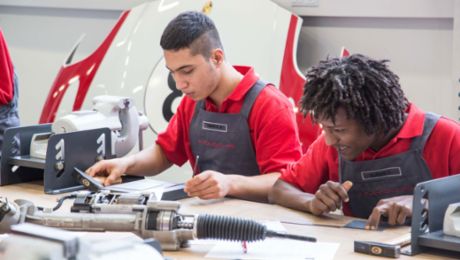The aim of the programme is for the participants to eventually obtain a training position or go directly into a permanent job in the general employment market. Porsche is making a conscious effort to provide training not simply to meet its own needs, but also to support industries in which there is a lack of skilled workers and help smaller companies that are unable to implement their own integration programme. To ensure the refugees can make a seamless transition, Porsche is working closely with the German Federal Employment Agency to provide them with careers advice. Following the first year of the programme, eleven refugees subsequently received employment at Porsche.
“Porsche continues to enjoy success, which makes it all the more important that we look at the bigger picture. That is why our integration programme is not simply aimed at giving refugees career opportunities that will help them to integrate successfully. Instead, it is about using our training expertise to provide companies like craft businesses or smaller industrial enterprises with motivated and highly qualified junior staff”, says Andreas Haffner, Member of the Executive Board, Human Resources and Social Affairs at Porsche AG.
Uwe Hück: “We embody a spirit of integration”
Uwe Hück, Chair of the Group Works Council at Porsche, also believes this comprehensive approach is the right way forward: “Successful integration includes receiving good-quality training, and that’s expensive. Many craft businesses or small enterprises can’t afford it. That’s why we are looking beyond our own company, because when you are as successful as Porsche, you have an obligation towards the wider society. We embody a spirit of integration by giving refugees the chance to find their feet in Germany at our company. That’s important, because being a refugee is not a career, it is a harsh fate. Behind every story of refugees there are real people and we must help them as best we can. But integration is not a one-way street. For me, it means that the refugees also have to learn German, accept our culture and play their part in a diligent and disciplined way. This will help us to make a contribution to society, and that is the unique spirit at Porsche”.
The Porsche integration programme lasts eight months and is divided into three blocks. In the first three months, the refugees undergo intensive German language training with a particular focus on technical terminology. Although each of the programme graduates is able to offer language level B1, the potentially interested employers specify improved language skills with a career focus as the most important requirement for obtaining future employment. In the second block, the participants learn basic technical skills over a four-week period at the Porsche training centre. In addition to practical training in tasks such as sawing, filing and drilling, this block focuses on raising awareness of safety and quality issues. For the last four months, the refugees observe various technical departments at Porsche and complete internships for orientation purposes, including at interested partner companies. The integration programme is supported over its entire duration by one vocational training day per week, plus social-pedagogical and sociocultural teaching.
The first integration year at Porsche exceeded expectations, with eleven of the thirteen refugees, aged between 16 and 38, enjoying continued career prospects at the sportscar manufacturer itself. The door is still open at Porsche for the other two participants; they are currently obtaining the language skills and training they need by attending further schooling.



